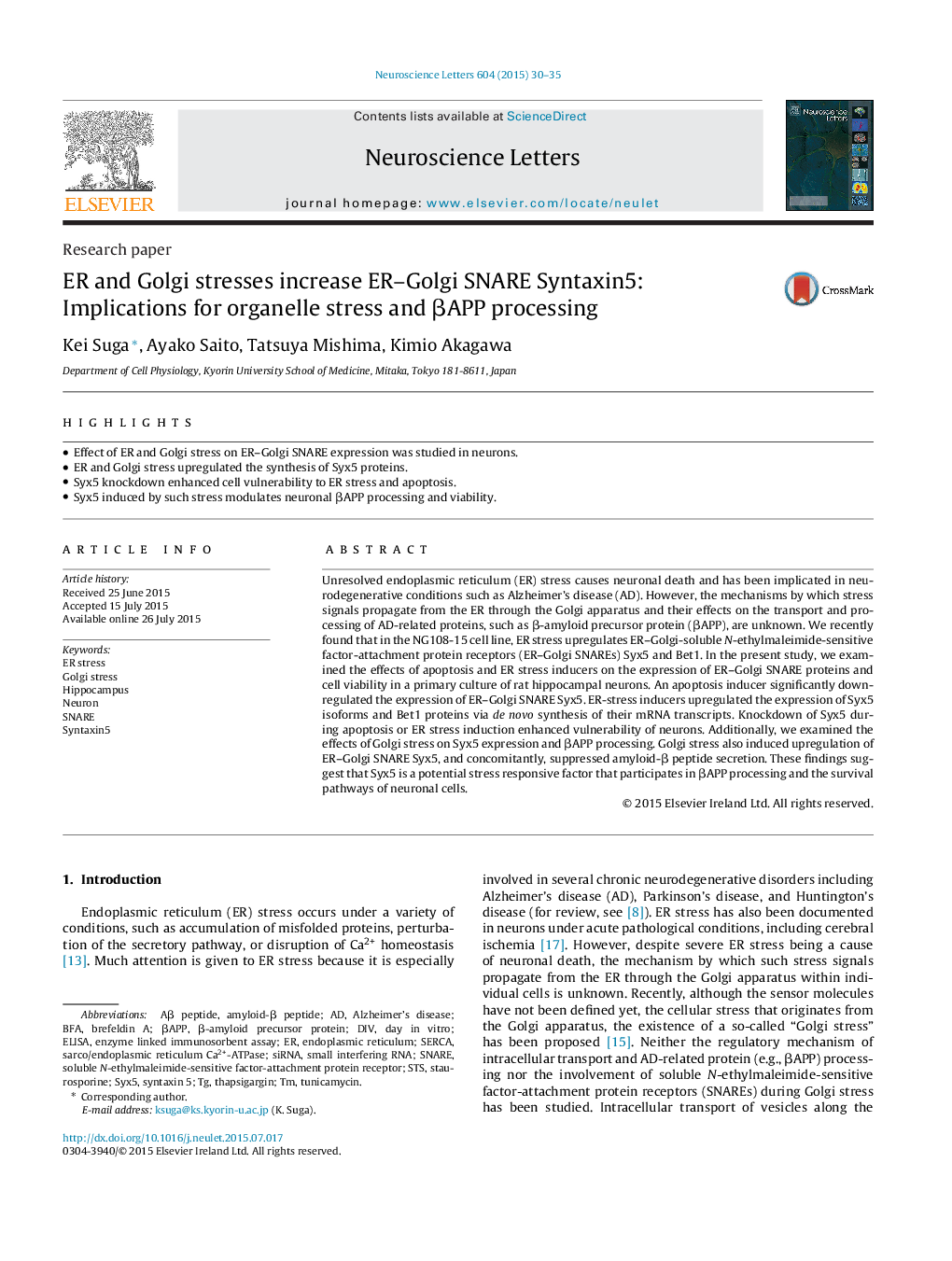| Article ID | Journal | Published Year | Pages | File Type |
|---|---|---|---|---|
| 6280391 | Neuroscience Letters | 2015 | 6 Pages |
Abstract
Unresolved endoplasmic reticulum (ER) stress causes neuronal death and has been implicated in neurodegenerative conditions such as Alzheimer's disease (AD). However, the mechanisms by which stress signals propagate from the ER through the Golgi apparatus and their effects on the transport and processing of AD-related proteins, such as β-amyloid precursor protein (βAPP), are unknown. We recently found that in the NG108-15 cell line, ER stress upregulates ER-Golgi-soluble N-ethylmaleimide-sensitive factor-attachment protein receptors (ER-Golgi SNAREs) Syx5 and Bet1. In the present study, we examined the effects of apoptosis and ER stress inducers on the expression of ER-Golgi SNARE proteins and cell viability in a primary culture of rat hippocampal neurons. An apoptosis inducer significantly downregulated the expression of ER-Golgi SNARE Syx5. ER-stress inducers upregulated the expression of Syx5 isoforms and Bet1 proteins via de novo synthesis of their mRNA transcripts. Knockdown of Syx5 during apoptosis or ER stress induction enhanced vulnerability of neurons. Additionally, we examined the effects of Golgi stress on Syx5 expression and βAPP processing. Golgi stress also induced upregulation of ER-Golgi SNARE Syx5, and concomitantly, suppressed amyloid-β peptide secretion. These findings suggest that Syx5 is a potential stress responsive factor that participates in βAPP processing and the survival pathways of neuronal cells.
Keywords
βAPPtunicamycinSTSBFAThapsigarginSNARESmall interfering RNAsiRNAenzyme linked immunosorbent assayER stressstaurosporinebrefeldin AAlzheimer's diseaseELISADIVday in vitrosarco/endoplasmic reticulum Ca2+-ATPaseendoplasmic reticulumSERCANeuronHippocampusβ-amyloid precursor proteinAβ peptideamyloid-β peptide
Related Topics
Life Sciences
Neuroscience
Neuroscience (General)
Authors
Kei Suga, Ayako Saito, Tatsuya Mishima, Kimio Akagawa,
